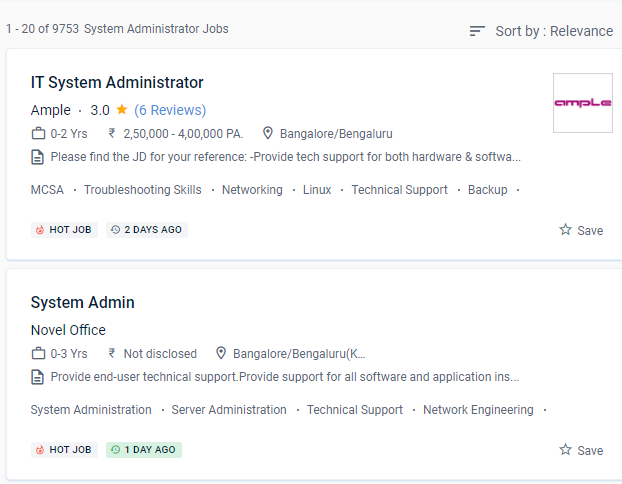System Administration Training by Experts
Our Training Process

System Administration - Syllabus, Fees & Duration
MODULE 1
- System administration introduction, policies, overview, UNIX history and basis
MODULE 2
- File systems and disks
MODULE 3
- Software installation concepts
MODULE 4
- Multi users basics, politics, policies and ethics
MODULE 5
- Automating administrative tasks
MODULE 6
- Networking
MODULE 7
- Backup and disaster recovery
MODULE 8
- DNS
MODULE 9
- SMTP, HTTP
MODULE 10
- Configuration management
MODULE 11
- Distributed computing
MODULE 12
- SNMP, monitoring
MODULE 13
- System security
This syllabus is not final and can be customized as per needs/updates





 We'll take a deep dive into the cloud, covering everything from common cloud infrastructure setups to cloud resource management. You'll also learn how to manage and configure servers, as well as how to manage PCs, user information, and user productivity using industry tools. This course will teach you about the infrastructure services that keep all businesses, big and small, running smoothly.
For secure, high-speed Internet access, they connect routers, modems, and firewalls. Network architects have frequently experienced administrators who build data transmission systems from the ground up. Circuit boards and CPUs are assembled by computer hardware engineers to produce functional mobile or desktop devices. Information security managers are given more duties when it comes to protecting sensitive data from hackers. Some people excel at determining the company's technology needs as information systems managers.
.
They are IT-savvy and can troubleshoot any technical issues that are causing the system to malfunction.
We'll take a deep dive into the cloud, covering everything from common cloud infrastructure setups to cloud resource management. You'll also learn how to manage and configure servers, as well as how to manage PCs, user information, and user productivity using industry tools. This course will teach you about the infrastructure services that keep all businesses, big and small, running smoothly.
For secure, high-speed Internet access, they connect routers, modems, and firewalls. Network architects have frequently experienced administrators who build data transmission systems from the ground up. Circuit boards and CPUs are assembled by computer hardware engineers to produce functional mobile or desktop devices. Information security managers are given more duties when it comes to protecting sensitive data from hackers. Some people excel at determining the company's technology needs as information systems managers.
.
They are IT-savvy and can troubleshoot any technical issues that are causing the system to malfunction.



















































































